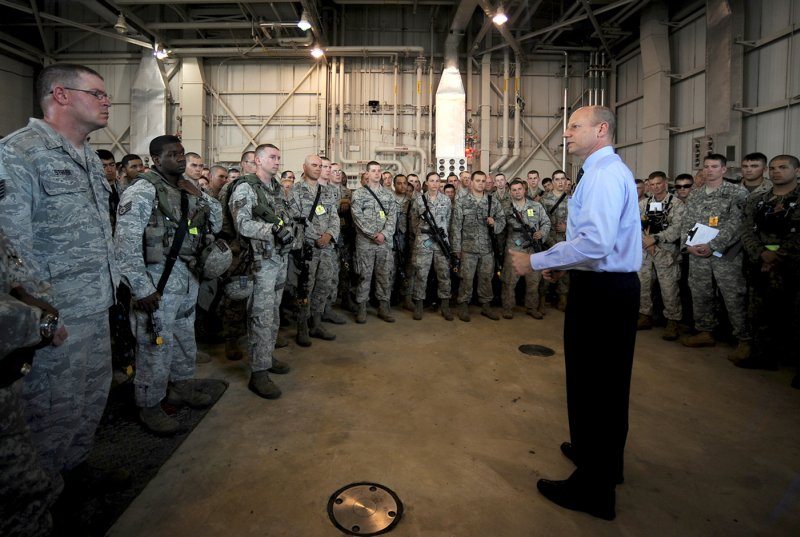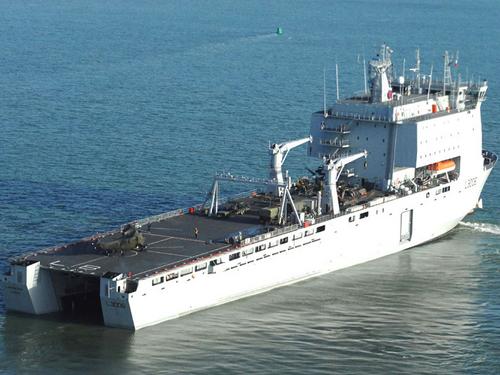The top defense official charged with defending the nation from nuclear, chemical and biological threats visited here May 9 to observe the Airmen responsible for maintaining and protecting America’s nuclear deterrent.
Andrew Weber, the assistant secretary of defense for nuclear, chemical and biological defense programs, met with Airmen, received a B-2 Spirit mission orientation and watched a portion of a security-forces exercise.
“Deterrence, which our national security and that of our allies depends on, is mostly based on credibility,” Mr. Weber said. “Our potential adversaries, be they North Korea or Iran, watch what you do here on the ground at Whiteman, because how you perform your day-to-day mission in the nuclear area really signals to the rest of the world how credible our deterrent is.”
During his visit, the secretary spoke about the nuclear mission, the New Strategic Arms Reduction Treaty and the realignment of munitions squadrons under Global Strike Command.
The reason for the visit was very simple, the secretary said.
“I wanted to meet the Airmen and let them know how vital the nuclear mission (they perform) is to our country,” he said. “On behalf of Secretary (of Defense Robert) Gates and President (Barack) Obama, it’s important that we let the Airmen understand the context they work in and how much we rely on what they do day-to-day to maintain a safe, secure and effective nuclear arsenal.”
Mr. Weber also addressed the importance of the New START, which, as one of President Obama’s administration’s top foreign policy priorities, was ratified by the Senate last year. In addition to reducing the number of strategic nuclear missile launchers by half, the treaty also established a protocol for continued inspection and verification of Russian and American strategic assets, such as long-range bombers.
The new treaty “allowed us to begin inspections back and forth; Russian inspectors coming here to the U.S. and our inspectors who work for the Defense Threat Reduction Agency visiting your counterparts in the Russian Federation,” he said. “What this gives us is stability and predictability in the nuclear relationship with Russia, and allows us to verify that they are indeed making the reductions called for in the New START.”
Mr. Weber also addressed the realignment of munitions squadrons from Air Force Materiel Command to Global Strike Command.
“As Global Strike Command went into full operational capability, it’s only natural that its responsibilities would ramp up over time,” he said. “Transferring the munitions squadrons to that chain of command is a natural next step as Global Strike Command matures.”
Not all nuclear, chemical or biological threats can be solved purely through deterrence, the secretary noted. One of the most pressing concerns is that non-state actors, such as al-Qaida, might acquire weapons of mass destruction.
“As President Obama has stressed, and as was made clear in the nuclear posture review released last year, what we worry about most is the potential for nuclear terrorism,” he said. “It’s non-state actors like al-Qaida and its affiliates getting their hands on the most dangerous kinds of weapons that we worry about, because they’re the ones using force, using violence to target civilians and Americans abroad, and our Soldiers on a daily basis.”











